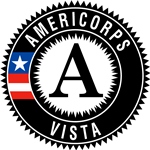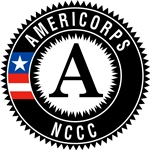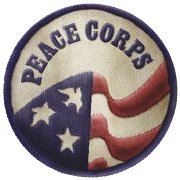Internship Program
Securing professional experience, through an internship, is one of the best ways to make yourself employable or competitive for graduate school. Why wouldn’t you want to do one?!
Career Development is excited to work with you to help you discover opportunities and prepare your application. We offer assistance with two types of internships:
- Academic Internships—These internships provide academic credit for the experience and are supervised by a professor. There are academic and work requirements along with a minimum number of hours of experience. This experience will appear as an internship credit on your transcript.
- Non-credit Internships—These internships do not provide credit and are simply extended professional experiences in a career field.
It is important to plan ahead regardless of what type of internship you choose. Working closely with Career Development, we can help you decide what type of internship you should have and when you should participate.
The best way to begin the process is to draft a professional resume. You will need a strong, marketable resume in order to apply for internship opportunities.
Academic Internships
Learning happens both inside and outside the classroom. Our Academic Internship program allows you to combine both by awarding you credit for participating in a professional learning experience in a non-profit, for-profit, or public organization.
Here are the steps to securing an Academic Internship:
- Review the Rules and Important Deadlines regarding the Academic Internship Program.
- Complete a professional resume that has been reviewed by our office.
- Speak to a faculty member to determine the types of experiences that they would approve. Faculty approval is required for any Academic Internship. The faculty member overseeing your internship can be, but does not have to be your faculty adviser.
- Fill out the Application for an Academic Internship in order to register for the internship course. During the fall and winter terms, you can do this during the normal registration period. You do not need to know where you are doing an internship in order to register for the internship course.
- Make an appointment to meet with Jill Warfield to discuss opportunities and to apply for positions. You can also search for opportunities through our Handshake posting site.
Read about our exciting tuition waiver opportunities to earn academic credit for your internship without paying extra for it!
Non-credit Internships
Sometimes receiving academic credit for an internship doesn’t fit your schedule or need. No worries—a non-credit internship may be right for you. In the end, getting the experience is what matters most!
Steps for securing a non-credit internship:
(You only need to follow these steps if you are seeking assistance from Career Development to find opportunities.)
- Write a professional résumé that has been reviewed by our office.
- Make an appointment to meet with Jill Warfield to discuss opportunities and to network. You can also search for opportunities through our Handshake posting site.
Please note: While Career Development will work with you to help you identify opportunities and contacts, we do not “place” you in an internship. Ultimately, you are responsible for finding, applying to, and securing an internship opportunity.
Academic Learning Work Agreement
The Academic Learning Work Agreement is for those students participating in an Academic Internship who have already registered their internship. The Academic Learning Work Agreement is a contract involving the student, your professor, your site supervisor and Career Development. This contract (serving as your course syllabus) outlines all the expectations and requirements for you to receive credit for your internship experience. Before completing the form, you should meet with your professor to discuss the following:
- The number of hours needed on-site to receive credit (between 120–140 over the term for 1 unit)
- Learning outcomes for the experience
- The academic requirements (e.g., paper, journal, presentation, etc.)
- Any meetings during the course of the term between you and the professor to discuss your progress
You should also discuss the following with your site supervisor:
- The job duties of the internship
- Any special training or orientation that will be required
- The signing of any documents, such as confidentiality statements or the undertaking of any health or drug tests.
Undergraduate Research
Whether on campus with Transy faculty or off campus at another university or institute, conducting research in your discipline provides invaluable experience. Regardless of professional goals, research demonstrates your commitment to pursuing knowledge, ability to synthesize information and talent in presenting clear, well-articulated ideas.
The following links provide information, application forms, and deadlines for a variety of undergraduate research opportunities:
- On-Campus Research – Undergraduate research often starts by being recognized by faculty in introductory courses. Your inquisitiveness, hard work, flexibility of thought, and capability to synthesize complex ideas may lead to your being approached by faculty for assistance on their research. But don’t wait to be approached if you’re interested—ask!
- Kenan/Jones Grants through Transylvania University – Kenan/Jones Grants are competitively awarded and are designed to support research conducted abroad in any discipline. Faculty sponsorship is required and should be sought out early for any project ideas. (Click the link above to go to the Grants Allocation Committee page, which contains guidelines and application forms.)
- Research Experiences for Undergraduates – REUs are sponsored by the National Science Foundation and provide grants to faculty around the country to hire undergraduates to assist with research. Projects and applications begin appearing on the NSF site around January and applications begin becoming due around February. They are not all added at once, so check back regularly. The projects cover all disciplines, but are more heavily geared toward the natural and mathematical sciences. These programs are highly competitive and require a letter of recommendation from a professor. Work with Career Development to ensure your application documents are strong.
Search for Opportunities
The job search is the culmination of the Four Step Process and is undertaken after having researched the career, networked with professionals and used your newfound knowledge to write effective application documents.
A smart job search rarely involves sitting at a computer and scanning job announcements on one of the nationwide job boards. A much more targeted search will usually be more productive. Also, determining what positions to apply for and which to leave to other applicants will make your search more efficient and productive.
Tips:
- Determine if the position you are interested in is one that you can make a competitive application for. Remember, you are competing against many other applicants. Are you qualified?
- Do not apply to jobs merely for the experience of applying. Only apply to jobs you have a legitimate interest in.
- Research job listings posted by LinkedIn as well as the sites listed below.
- Oftentimes, when applying for opportunities, you may encounter questions on applications about salary expectations. Know before you apply what you can anticipate earning by reviewing these resources.
The following links take you to job boards that list opportunities from companies and organizations seeking college graduates. We have also included links to companies and organizations that have hired many Transy alumni in the past, as well as the leading nationwide hiring firms for college grads.
Resources
Kentucky Works

Kentucky Works provides job listings for area companies and agencies. You can choose to search state-wide or select a specific region. It is a free tool for job seekers and lets you upload your resume into a searchable database.
College Grad

This site publishes an annual survey showing the top 50 employers of college graduates. If you want to know who is hiring, this can be very useful.
Idealist
Idealist provides extensive listings of opportunities with the non-profit sector. You can view jobs, post resumes, research employers, and learn about regional job fairs. The organization also provides information on opportunities abroad.
Americorps
Considered the “domestic Peace Corps,” AmeriCorps offers college graduates the opportunity to serve their country by providing service to those in need around the U.S. AmeriCorps State programs have the worker connect with a non-profit to assist that organization in its mission to better the community.

Americorps VISTA participants focus on fighting poverty in a myriad ways.

Americorps NCCC participants work on different service projects around a given region in conjunction with secular and non-secular organizations.
Teach for America

Teach for America is a highly competitive program whose purpose is to bring college graduates into high-need schools to teach at-risk children. Application deadlines are early in the fall term for teaching the subsequent fall.
Salary Calculator
Know before you go! Whether asked on the application or during an interview, facing a question regarding salary expectations can be awkward and daunting and can leave you out in the cold if you are not prepared.
- Many professional associations provide average salary information for different occupations. Just remember to factor in “cost of living” analysis by city—New York City and Louisville differ greatly!
- You can also use this free Salary Calculator from NACE. The more information you provide, the stronger the results.
Handshake Job Postings
Click here to see all the open positions on our Handshake jobs and internships site.
Job Search Process
A successful job search requires that you are willing to put in time, hard work and thought. The following Four Step Process* can help you organize your search, put together stronger applications, and lead to more interviews.
- Documents—Resumes, cover letters, personal statements, etc. The stronger these are, the better the chance you will secure an interview.
- Research—The better understanding you have of the job, profession, company, and industry you seek to join, the better your documents and potential interviews will reflect this and the more you will impress those employers.
- Networking—“Network or Not work” is a Career Development mantra! Connecting to professionals, alumni, and others in the community will help you better understand an industry or profession, give you advance notice of job openings, and may be the key to helping secure an interview!
- Search—Where you are looking for jobs and what jobs you are looking at can have a great impact on your success.
*Adapted from a presentation by and used with permission from Christine Y. Cruzvergara, George Mason University
Research
When writing a paper, research is a fundamental expectation of the process. Why should applying for jobs be any different?
Conducting research during the job search process is different from trolling the library or online article database. However, research, before preparing an application, can go a long way toward making you more competitive.
The goal of the research is to understand three key elements related to the job you’re applying for:
- The job/profession
- The company
- The industry
The stronger your research, the more effectively you can develop and tailor your application documents.
- The Job — Know as much as you can about what you are applying for before you apply. Some job announcements are unclear or incomplete—learn more! Unless stated otherwise, contact the company to fill in the blanks.In addition to knowing about the specific job, you should know about the profession you are considering. Research the professional association related to the job you are seeking. For example, you can simply Google, “professional association of social workers” to find likely suspects. There is usually a wealth of information, including career paths, education requirements, ethical standards, policy stances, etc.Conducting an informational interview helps you acquire knowledge and understanding of the profession and also helps you network within the field.
- The Company — Not demonstrating familiarity with the targeted company is an easy reason for an employer not to hire you. Review the company’s website to learn more about their mission, history, etc. You can find information through GoingGlobal’s Employer Profiles and through Mergent Online, available on the library’s website under “find articles and other info.” A quick suggestion: know the stock symbol and current price for any publicly traded company.
- The Industry — Using the same professional associations and resources that you accessed for the company search, spend time understanding the industry you are seeking to join. Having a broad understanding of industry trends, best practices, legal and ethical issues, and latest news can show a potential employer you are intelligent and willing to put in the hard work necessary to succeed on the job.
One of the best ways to conduct quality research is to speak to or email professionals in the field. Be sure you are networking!
Networking
If you work with the Career Development staff, you will quickly learn our mantra “Network or Not Work!” Networking is an essential process of learning who is in the know and getting to know those in the know.
Networking is an intentional process of developing relationships with professionals within or connected to the companies and industries where you are seeking opportunities. Contacting professionals to set up informational interviews can be a helpful way to learn about career paths and job opportunities and can help you position yourself for the real interview.
The following resources are available to help you develop, cultivate, and expand your networking reach:
- Alumni Connections — Career Development will work with you to identify alumni within industries and/or geographical locations where you are focusing your search. To take advantage of our alumni connections, you must first have a resume reviewed and approved by Career Development.
- Professional Associations — As with research, professional associations present an easy and effective way to develop a network. Local, regional and national leaders in the association can help you build bridges and develop better insights into opportunities. Attending professional association conferences can be a fun and informative way to build a network. There are often inexpensive student rates to join associations and attend conferences.
- LinkedIn — Building a LinkedIn profile will introduce you to the world of online networking. LinkedIn uses your resume to help you build a professional profile. From there you can join Groups, often extensions of professional associations, to explore contacts. You can also join the Transylvania Alumni Group.
- Faculty Connections — In addition to the obvious connections faculty members have with colleagues at other colleges and universities, they often have strong connections within industries, non-profits, and community groups related to their research.
With successful networking, you will be well-connected when you begin and be successful at the end of the search.
Working Abroad
There is often strong interest in finding opportunities abroad, especially after a rewarding study abroad experience. The following advice and resources may help you explore opportunities.
- Participating in a full-term or summer study abroad experience is essential. Employers need to see that you have had an experience “under your belt.”
- While not required for all experiences, having proficiency in a second language is often mandated or strongly preferred. Studying abroad is often a fantastic way to develop proficiency.
- Start early! Many premier programs, such as those featured below, have early and competitive application processes.
- Speaking to alumni who have worked abroad can give you insight into application processes and help you determine the best programs to apply to.
Fulbright Program

The Fulbright organization awards competitive grants for experiences abroad in many different countries. Students may apply for one of two grants—an academic/research grant based upon a project/study to be conducted in the host country or the English Teaching Assistantship that pairs you with a teacher to provide language and cultural sharing. Contact Erin Truong, in the winter term of your junior year to be considered. You must be nominated by Transy to be eligible.
The Japan Exchange and Teaching Program

Similar to the Fulbright program, JET offers selected applicants the opportunity to live in Japan and help teach students English, while also working to bring cultural understanding. This is a highly competitive program that provides a lifetime of memories.
Peace Corps

The Peace Corps’ purpose is to promote peace and understanding between the United States and host countries through service. Peace Corps volunteers spend two years in the host country working in areas such as education, youth and community development, health, business and information and communication technology, agriculture and the environment.
Competition to secure an assignment is high and requires the ability to demonstrate leadership, self-motivation, and the ability to work independently on vitally important projects.

